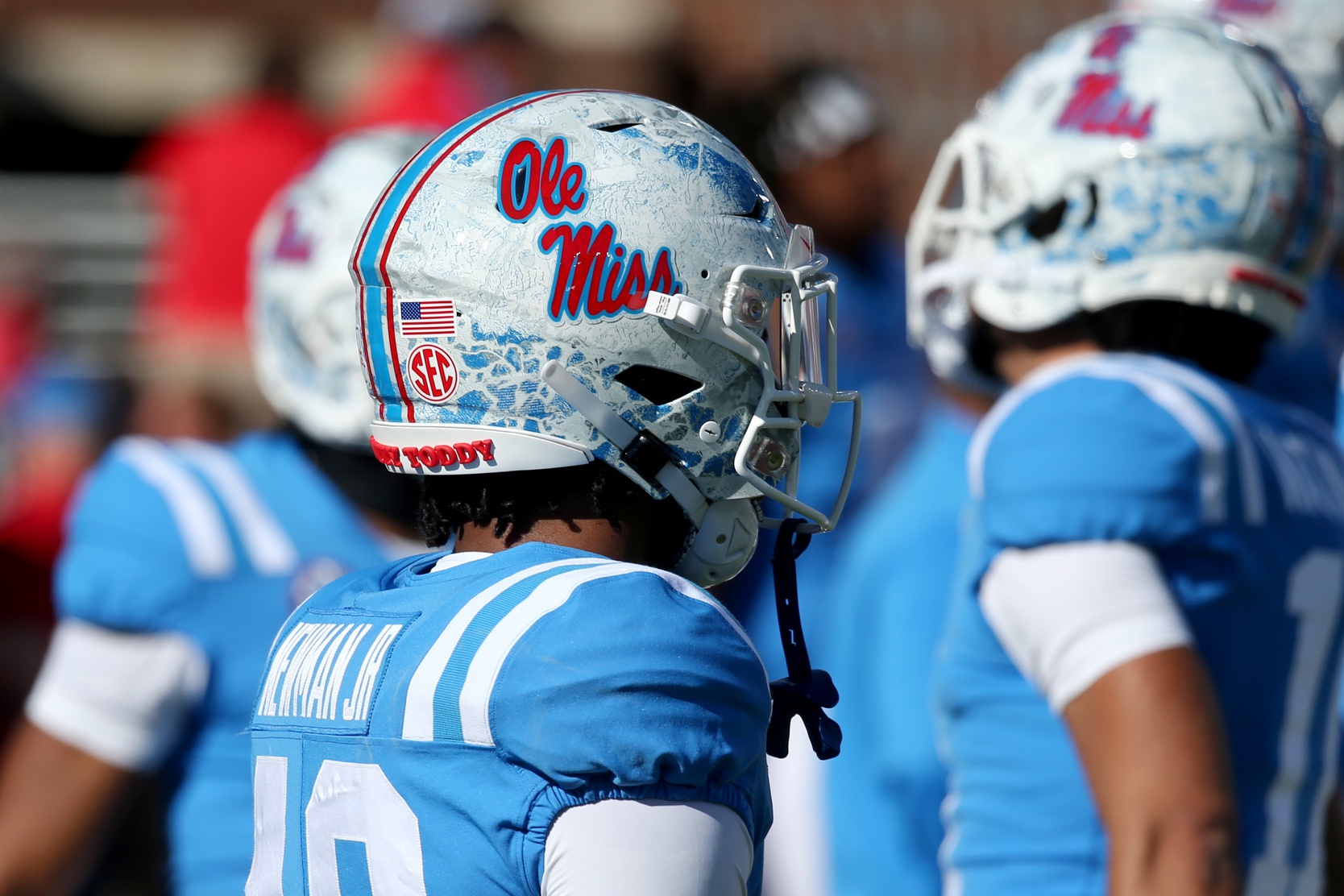There might be no other current FBS school with a more complicated mascot history than the one at the University of Mississippi. The origin of referring to the school as “Ole Miss” is a more straightforward story. It was the winning entry during a contest in 1896 to choose a title for the new school yearbook and has since gradually become synonymous (and more widely recognized) with the university.
Now that the simple matters are behind us, let’s look at how Ole Miss came to be known as the Rebels and the (many) mascots used to symbolize the institution.

Who (or What) Is the Ole Miss Rebels’ Mascot?
As of this writing, Ole Miss’s official mascot is Tony the Landshark. It should also be noted that Tony the Landshark has not been seen at Ole Miss games of any sport since 2021.
“Landshark” at Ole Miss is a term first adopted by the Rebel football team’s defensive unit. As part of that identity, defensive players on the team would celebrate big plays during the course of a game by putting a hand to their own forehead in the shape of a shark fin.
Roots of the Landshark at the school date back only to 2008. After four consecutive losing seasons, the Rebel football team returned to national prominence with a 9-4 record which included a win over Texas Tech in the Cotton Bowl. That team’s strength was stopping the run — they ranked fourth in FBS in rushing yards per game allowed (85.5) and led the SEC by holding opponents to 2.7 rushing yards per carry.
The term Landshark originated that season from senior linebacker Tony Fein, an Army veteran who served a one-year tour in the Iraq War before he arrived in Oxford, and was the leader of that defensive unit that was so stout against the rush. He passed away in October 2009, but his legacy at Ole Miss continues through the Landshark which became the official mascot for the school in October 2017.
The Landshark replaced Rebel the Bear, who was selected as the Ole Miss mascot in 2010. In 2003, the university retired Colonel Reb from the field in an effort to steer fans of the university away from symbols of the Old South. Colonel Reb had served as the teams’ official sideline mascot since 1979.
Why Is Ole Miss the Rebels?
“Rebels” became Ole Miss’ official athletics nickname in 1936 and has endured despite the confusion regarding the mascot.
It was one of five entries submitted to Southern sports writers for final selection from a list of over 200 proposed nicknames. The student newspaper, The Mississippian, received 18 of 21 responses in favor of the nickname.
It became official soon after when the Chairman of the University Athletic Committee, Judge William Hemingway, said, “If 18 sports writers wish to use ‘Rebels,’ I shall not rebel, so let it go ‘Ole Miss Rebels.'”
If anything, the drama over a mascot at Ole Miss does give rise to the very meaning of symbolic figures, especially in the realm of college athletics. Mascots are more than just costumed figures that patrol the sidelines and dance alongside the cheerleaders.
In fact, they very much serve as powerful sources of pride for fans and represent the university’s identity.
If Ole Miss is indeed searching for a new mascot as it grapples with its past, here is to hoping that search is one that strikes a balance between elevating its tradition and promoting inclusiveness.
College Football Network has you covered with the latest news and analysis, rankings, transfer portal information, top 10 returning players, the 2024 college football season schedule, and much more!

